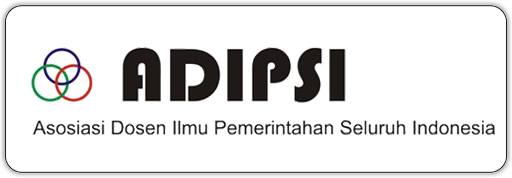Adaptive Policy for Digital Transformation in Indonesia
DOI:
https://doi.org/10.31629/kemudi.v7i02.5622Keywords:
Adaptive Policy, Digital Transformation, Constraint Factors, IndonesiaAbstract
The development of digital technology is accelerating and has changed the way people communicate, shop, work and even interact with the government in their daily lives. This is a transformation of the digital era. This study uses the literature review method to analyze articles and case studies related to adaptive policies in digital transformation in Indonesia. In this research, the inhibiting factors and benefits of adaptive policies have been found in digital transformation in Indonesia. The inhibiting factors found include the lack of adequate digital infrastructure, the lack of skilled human resources in the digital field, as well as regulations and policies that have not supported the development of digital technology in Indonesia. However, the benefits of adaptive policies in digital transformation in Indonesia are enormous, including increasing productivity, competitiveness and economic growth. Therefore, it is important for the government to implement adaptive policies in digital transformation in Indonesia in order to minimize the inhibiting factors and maximize the benefits of digital transformation.
Downloads
References
Ciborra, C. U. (2000). From Control to Drift: The Dynamics of Corporate Information Infrastructures. Oxford University Press.
Darmawan, E. (2018). E-readiness Provinsi Kepulauan Riau dalam penerapan e-government (studi terhadap Kepri smart province). KEMUDI: Jurnal Ilmu Pemerintahan, 3(1), 173-192.
Ernawati, N. M., & Anwar, M. A. (2020). Adaptive policy in digital development: A review of Indonesia's experience. IOP Conference Series: Materials Science and Engineering, 774(1), 012052. http://doi:10.1088/1757-899X/774/1/012052
Johnston, J., & Bowen, G. A. (2013). Public Management Implications of the Open Government Partnership. American Review of Public Administration, 43(6), 687-699. http://doi:10.1177/0275074013487888
Kementerian Komunikasi dan Informatika. (2020). Gerakan Nasional 1000 Startup Digital. Diakses pada 4 April 2023, dari https://startup.kominfo.go.id/.
Kementerian Koperasi dan UKM. (2020). Program Digitalisasi UMKM. Diakses pada 4 April 2023, dari https://www.kemenkopukm.go.id/page/program-digitalisasi-umkm.
Kothari, C. R. (2004). Research methodology: Methods and techniques. New Age International.
Kurniawan, H. (2018). Pertumbuhan Ekonomi Digital Indonesia: Tantangan dan Peluang. Jurnal Ekonomi & Studi Pembangunan, 19(2), 214-226.
Lanzolla, G., & Anderson, J. (2008). Digital transformation. Business Strategy Review, 19(2), 72-76. http://doi:10.1111/j.1467-8616.2008.00503.x
Lanzolla, Gianvito; Anderson, J. (2008). Digital trans forma tion. Business Strategy Review.
Maulidah, R. (2021). Digitalisasi UMKM di Indonesia: Tantangan dan Solusi. Jurnal Wira Ekonomi Mikroskil, 11(1), 51-60.
Mazaya, A. (2019). Tantangan Gerakan Nasional 1000 Startup Digital di Indonesia. Prosiding Seminar Nasional Inovasi dan Aplikasi Teknologi di Industri (SNIATI) 2019, 203-208.
Molla, A., & Licker, P. S. (2018). Perceived benefits and challenges of adaptive policies for digital government: An exploratory study. Government Information Quarterly, 35(1), 103-116.
Moon, M. J. (2002). The evolution of e-government among municipalities: rhetoric or reality? Public Administration Review, 62(4), 424-433. http://doi:10.1111/0033-3352.00181
Nurdin, A. (2021). Digitalisasi UMKM di Era Industri 4.0. Jurnal Sosiohumaniora, 23(2), 145-152.
Presiden Republik Indonesia. (2019). Undang-Undang Nomor 11 Tahun 2019 tentang Sistem Elektronik Nasional. Diakses pada 4 April 2023, dari https://peraturan.bpk.go.id/Home/Details/107632/uu-no-11-tahun-2019.
Schallmo, D. R. A., & Williams, C. A. (2018). History of Digital Transformation. 3–8. https://doi.org/10.1007/978-3-319-72844-5_2
Setiawan, M. I., & Pramudianto, A. B. (2020). Strategi Indonesia dalam Menghadapi Revolusi Industri 4.0. Jurnal Ilmu Administrasi Publik, 10(1), 1-13.
Sudaryono, B. (2018). Implementation of E-Government Policy in Indonesia. In 2018 3rd International Conference on Science and Technology-Computer (ICST), 22-25.
Suryadarma, D., & Yusuf, A. A. (2018). The state of ICT in Indonesia: infrastructure, usage, and impact. Bulletin of Indonesian Economic Studies, 54(2), 183-208. http://doi:10.1080/00074918.2018.1460688
Westerman, George; Bonnet, Didier; McAfee, A. (2014). The Nine Elements of Digital Citizenship. Digital Citizenship in Schools, 15–44. http://www.iste.org/docs/excerpts/DIGCI2-excerpt.pdf
Wibowo, A. S., & Gunawan, A. (2019). 1000 Startup Digital: Problematika Pengembangan Startup di Indonesia. Jurnal Manajemen dan Kewirausahaan, 21(1), 79-86.
Wicaksono, A. (2020). Digitalisasi UMKM Indonesia dan Upaya Peningkatan Daya Saing Melalui Pemanfaatan Teknologi Informasi. Prosiding Seminar Nasional Manajemen Bisnis dan Ilmu Sosial (SNMBIS) 2020, 1-8.













